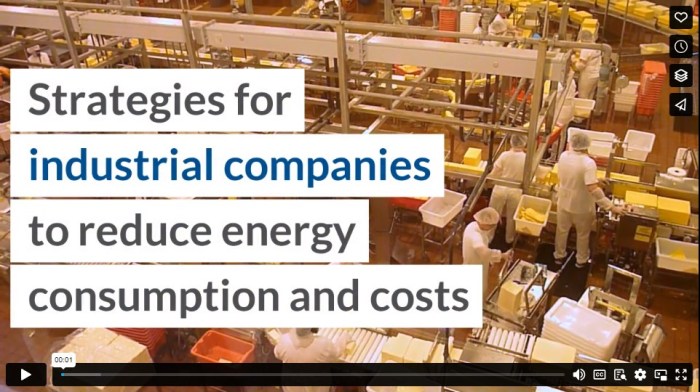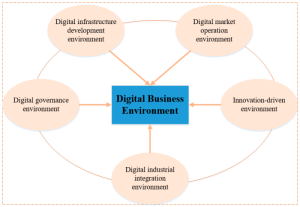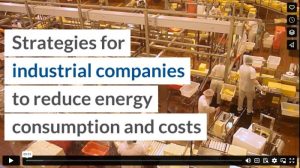
With Business energy cost reduction at the forefront, get ready to uncover the secrets to lowering energy expenses in various industries. From innovative technologies to smart practices, this topic will enlighten you on the path to cutting costs and optimizing operations.
Exploring strategies, examples, and the importance of energy audits, this discussion will empower businesses to take charge of their energy consumption and pave the way for a more sustainable future.
Business Energy Cost Reduction
Reducing energy costs in a business setting is crucial for improving profitability and sustainability. By implementing energy-efficient strategies and technologies, companies can lower their expenses and reduce their environmental impact.
Energy-Efficient Technologies
- LED Lighting: Switching to LED bulbs can significantly reduce electricity consumption compared to traditional incandescent bulbs.
- Solar Panels: Installing solar panels can generate renewable energy on-site, reducing reliance on the grid and lowering electricity bills.
- Smart Thermostats: These devices can optimize heating and cooling schedules based on occupancy patterns, leading to energy savings.
- Energy-Efficient Appliances: Upgrading to energy-efficient appliances can lower electricity usage and decrease operating costs.
Importance of Energy Audit
An energy audit is essential for identifying areas where energy efficiency can be improved. By assessing energy usage, businesses can pinpoint opportunities to reduce waste and optimize their energy consumption.
Chemicals and Allied Products

Energy cost reduction plays a crucial role in the chemicals and allied products industry, where energy-intensive processes are common. By implementing sustainable practices and utilizing energy-efficient equipment, businesses in this sector can significantly reduce their energy consumption and operational costs.
Impact of Energy Cost Reduction
- Reduction in energy costs leads to improved profit margins for chemical and allied product manufacturers.
- Lower energy consumption helps companies meet sustainability goals and reduce their carbon footprint.
- Energy cost savings can be reinvested in research and development for innovative products and processes.
Sustainable Practices
- Adopting energy-efficient technologies such as LED lighting, HVAC systems, and insulation to reduce energy use in facilities.
- Implementing a comprehensive energy management system to monitor and optimize energy consumption across operations.
- Utilizing renewable energy sources like solar or wind power to supplement traditional energy sources and reduce reliance on fossil fuels.
Role of Energy-Efficient Equipment
- Energy-efficient equipment such as pumps, motors, and boilers can help optimize production processes and reduce energy waste.
- Investing in modern process control systems and automation technologies can improve energy efficiency and overall operational performance.
- Regular maintenance and upgrades of equipment ensure optimal performance and energy savings in the long run.
Construction and Maintenance
Energy cost reduction initiatives can greatly benefit the construction and maintenance industry by not only lowering operational expenses but also promoting sustainability and environmental responsibility. By integrating energy-saving solutions, construction projects can reduce their carbon footprint, improve energy efficiency, and save money in the long run.
Case Studies of Successful Construction Projects
- Incorporating solar panels into the design of a new commercial building in downtown Chicago resulted in a 30% reduction in energy costs over the first year of operation.
- Using energy-efficient lighting and HVAC systems in a newly constructed warehouse in Los Angeles led to a 25% decrease in electricity consumption compared to traditional buildings.
- Retrofitting an older office building in New York City with smart technology and insulation upgrades resulted in a 20% reduction in heating and cooling expenses.
Importance of Regular Maintenance for Energy Efficiency
Regular maintenance is essential to ensure that energy-efficient operations are maintained over time. Without proper upkeep, energy-saving equipment and systems can become less effective, leading to increased energy consumption and higher costs. By scheduling routine inspections, cleaning, and repairs, construction and maintenance companies can prolong the lifespan of energy-efficient solutions and maximize their benefits.
Consumer Goods and Services

Consumer goods and services businesses can significantly lower energy costs by implementing energy-saving measures throughout their operations. From retail stores to service establishments, there are various strategies that can be applied to reduce energy consumption and expenses.
Implementing Energy-Saving Measures in Retail Stores and Service Establishments
- Upgrade to energy-efficient lighting systems, such as LED bulbs, to reduce electricity usage and lower maintenance costs.
- Implement smart temperature control systems to optimize heating and cooling, reducing energy consumption while maintaining customer comfort.
- Utilize natural light where possible to reduce the need for artificial lighting during daylight hours.
- Invest in energy-efficient appliances and equipment to lower electricity usage in daily operations.
- Train staff on energy-saving practices, such as turning off lights and equipment when not in use, to promote a culture of energy conservation.
Impact of Energy-Efficient Packaging and Transportation
- Switch to eco-friendly packaging materials that are both sustainable and energy-efficient to reduce waste and transportation costs.
- Optimize transportation routes and logistics to minimize fuel consumption and overall energy usage in the supply chain.
- Utilize electric vehicles or hybrid fleet options for transportation to lower carbon emissions and decrease fuel expenses.
- Collaborate with suppliers and partners to implement green packaging and transportation practices, creating a more sustainable ecosystem within the industry.
Business Energy
Business energy is a crucial component of operational costs for companies across various industries. It refers to the energy required to power the day-to-day operations of a business, including electricity, heating, cooling, and other energy-intensive processes. Managing and optimizing business energy usage is essential for reducing costs and enhancing sustainability.
Common Sources of Energy Consumption
- Electricity: Most businesses rely heavily on electricity for lighting, equipment, and other electrical needs.
- Heating and Cooling: Maintaining comfortable temperatures in commercial spaces often leads to high energy consumption.
- Machinery and Equipment: Industrial processes and manufacturing activities consume significant amounts of energy.
- Transportation: Businesses with fleets or transportation needs incur energy costs for fuel and vehicle maintenance.
Benefits of Renewable Energy Sources
- Cost Savings: Renewable energy sources like solar and wind power can help businesses reduce their energy bills over time.
- Sustainability: Using renewable energy reduces carbon emissions and helps companies meet environmental goals.
- Tax Incentives: Many governments offer tax incentives and rebates for businesses that invest in renewable energy solutions.
- Energy Independence: Generating energy on-site through renewables can provide businesses with more control over their energy supply.
Business Environment
Reducing energy costs not only benefits businesses financially but also plays a crucial role in creating a sustainable business environment. By implementing energy-saving practices, companies can minimize their carbon footprint, reduce greenhouse gas emissions, and contribute to a healthier planet.
Companies Implementing Energy-Saving Practices
- Google: Google has invested heavily in renewable energy sources and energy-efficient technologies. They have set a goal to operate on 100% renewable energy by 2030.
- Walmart: Walmart has been focusing on energy efficiency for years, implementing LED lighting, energy management systems, and renewable energy projects in their stores and distribution centers.
- Apple: Apple has committed to powering all its facilities with 100% renewable energy. They have also worked with their suppliers to reduce energy usage in their production processes.
Government Policies and Incentives
Government policies and incentives play a significant role in promoting energy efficiency in the business sector. Through tax incentives, grants, and rebates, governments encourage businesses to adopt energy-saving technologies and practices. Additionally, regulations such as energy efficiency standards and emissions targets push companies to improve their energy performance and reduce their environmental impact.
Last Point
As we conclude our journey through the realm of Business energy cost reduction, remember that every step taken towards reducing energy costs not only benefits the bottom line but also plays a crucial role in creating a greener and more efficient business landscape. By implementing these strategies and embracing energy-efficient practices, businesses can thrive while contributing to a more sustainable future.
Essential Questionnaire
How can businesses in the consumer goods sector lower their energy costs?
Businesses in the consumer goods sector can lower energy costs by implementing energy-saving measures in their retail stores, such as using LED lighting and optimizing heating and cooling systems.
What is the role of energy-efficient equipment in optimizing production processes?
Energy-efficient equipment helps optimize production processes by reducing energy consumption, minimizing waste, and improving overall operational efficiency.
Why is regular maintenance important for ensuring energy-efficient operations in the construction industry?
Regular maintenance is crucial in the construction industry to ensure that energy-efficient systems and equipment are functioning optimally, leading to cost savings and sustainable operations.





